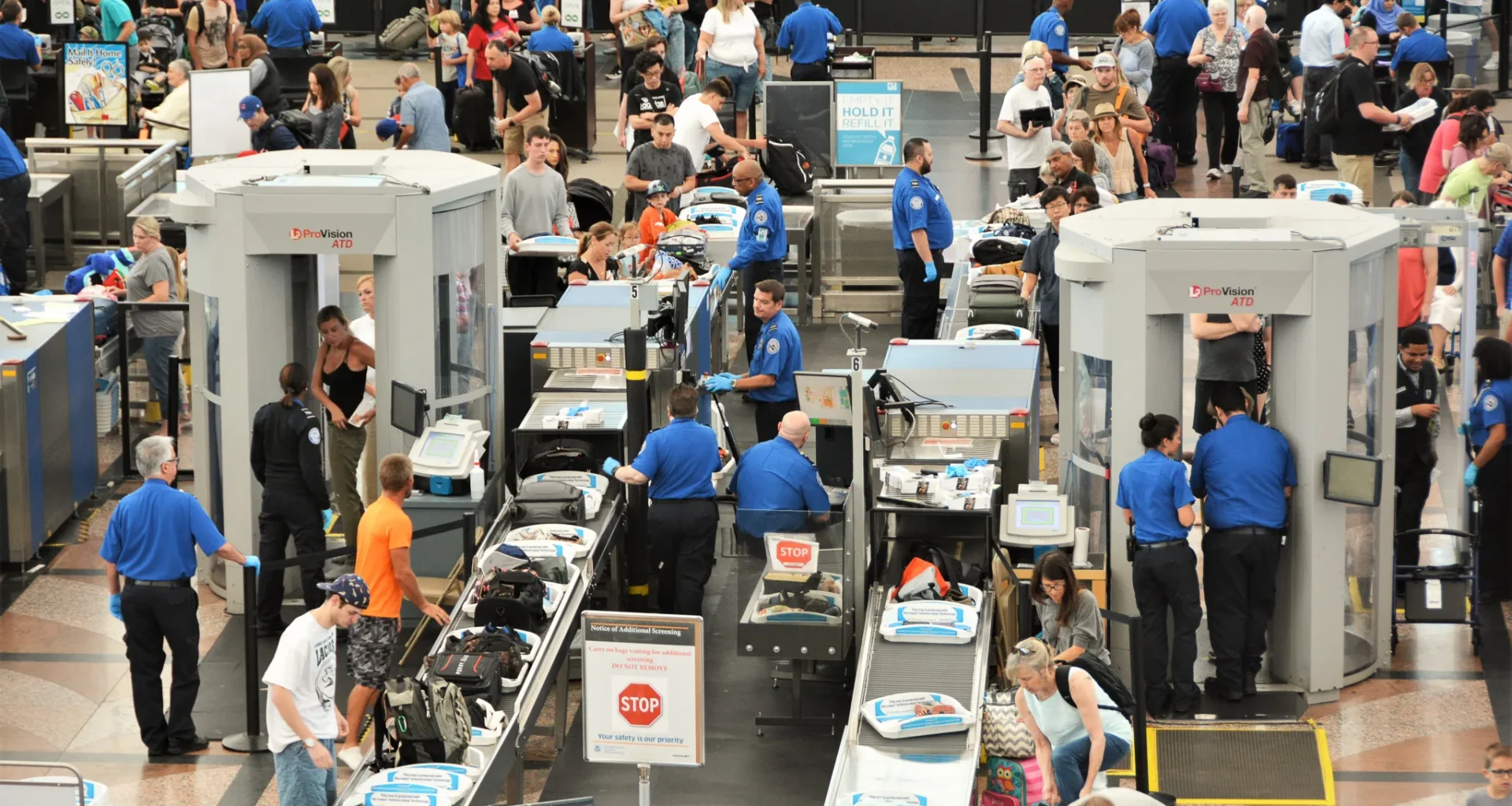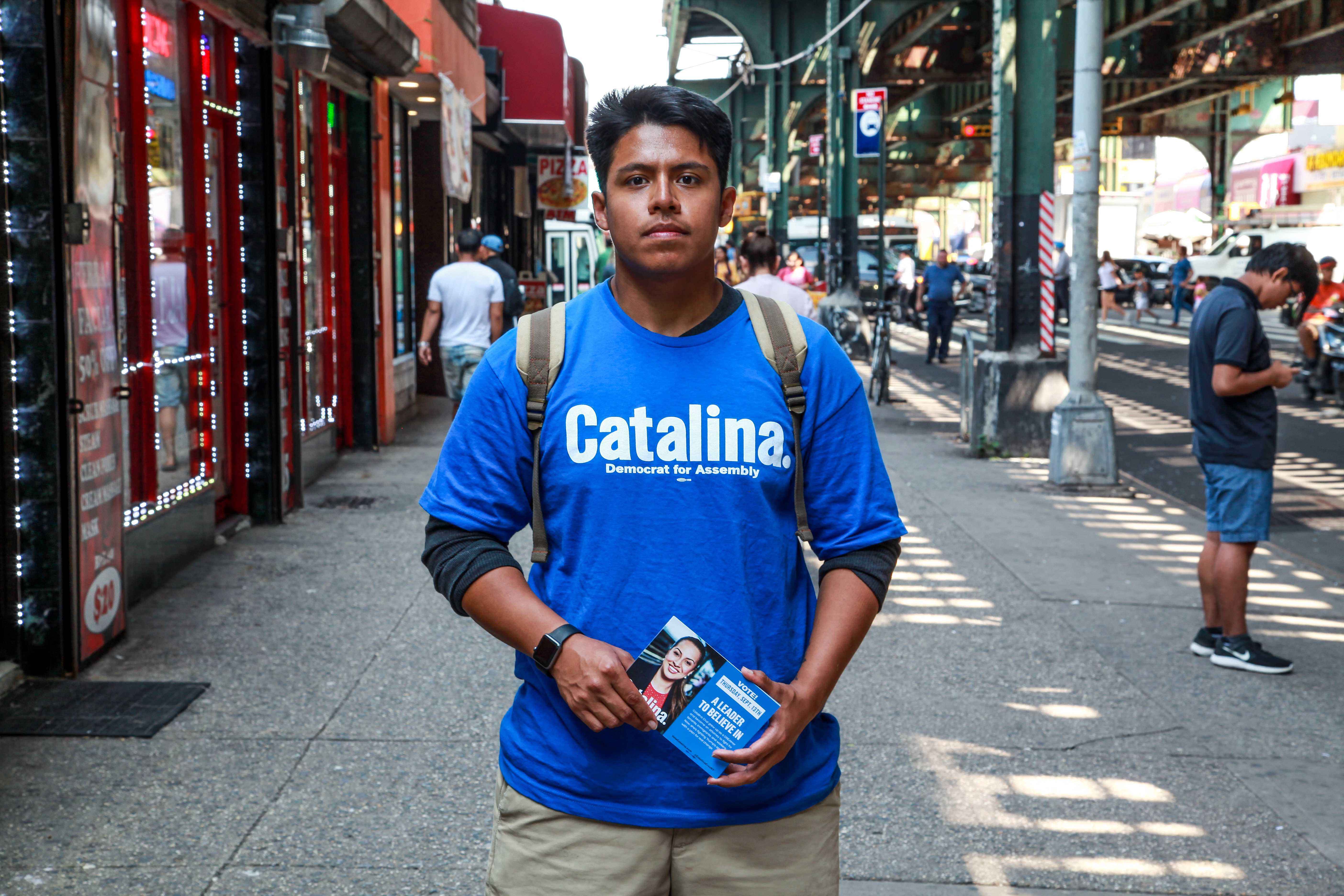With more H-1B workers than any other metro area in the country, New York City is bracing for the fallout from a sweeping change to the high-skilled visa program.
On Friday, President Donald Trump signed a proclamation requiring companies filing for new H-1B petitions to pay a $100,000 fee — an astronomical increase from the previous fee of $215. The change to the program was immediate, taking effect at 12:01 a.m. ET on Sunday. Although it is scheduled to expire after a year, it could be extended.
Immigration attorney Kathleen Campbell Walker, who works in El Paso, Texas, said the move “inserts total chaos in the existing H-1B process with basically a day’s notice” in a LinkedIn post cited by the AP.
Immigration News, Curated
Sign up to get our curation of news, insights on
big stories, job announcements, and events happening in immigration.

Please check your email for further
instructions.
Why New York is especially exposed
According to the Pew Research Center, the New York-Newark-Jersey City metro area led the nation in H-1B approvals in 2023, with 55,000 applications approved — nearly double Washington, D.C. or San Jose, California, the next-highest metros.
New York’s economy relies heavily on international talent across finance, tech, universities and hospitals. While larger corporations might be able to absorb the six-figure cost to bring in new skilled foreign workers, startups, nonprofits and smaller firms likely will not be able to.
Beyond economics, the fee could reshape the city’s identity as a hub for global talent. If employers scale back international hiring, New York risks losing researchers, engineers, and creatives to other locales with fewer restrictions, leaving potential long-term scars on the city’s diversity and competitiveness.
New visas for the rich
The H-1B overhaul is part of a broader immigration shake-up. The administration on Friday also launched a $1 million “gold card” visa offering a pathway to citizenship for wealthy investors, a $2 million “corporate gold card” allowing companies to sponsor employees, and is preparing a $5 million “platinum card” for individuals to live in the U.S. part-time tax-free, pending congressional approval. The executive order gave the Secretary of Commerce, Secretary of State and Secretary of Homeland Security 90 days to “take all necessary and appropriate steps” to implement the new pay-to-play program.
The administration’s rationale
Trump pitched these changes as a way to protect American workers and raise revenue.
“The main thing is we’re going to have great people coming in and they’re going to be paying,” Trump told reporters as he signed the orders in the Oval Office. “We’re going to take that money and we’re going to be reducing taxes and we’re going to be reducing debt.”
Howard Lutnick, the commerce secretary, was more direct. “The company needs to decide … is the person valuable enough to have a $100,000-a-year payment to the government, or they should head home, and they should go hire an American,” he said. “Stop the nonsense of letting people just come into this country on visas that were given away for free. The president is crystal clear: valuable people only for America.”
The executive order itself, however, proved less than crystal clear. Widespread confusion and panic spread among workers with existing H1-B visas who were abroad when it was announced, unclear if the new fee would apply to them if they didn’t return to the U.S. before Sunday. They cancelled travel plans in India, China, Dubai, Paris and Japan, to name a few locales, hopped off planes mid-taxi or spent thousands of dollars on last minute flights that would land before the stroke of midnight. The administration later clarified that the fee would apply only to new applications, not existing H-1B visas or renewals. Officials have issued contradictory remarks about whether it is a one-time or recurring cost.
The proclamation also orders the Labor Department to raise the minimum salaries employers must pay H-1B workers, but it hasn’t yet said what those new thresholds will be.
Criticism and legal challenges
Critics accuse Trump of sidestepping Congress and warn the new fees will deter hiring, harm families, slow innovation, drive jobs offshore and weaken U.S. competitiveness.
“We’re concerned about the impact on employees, their families and American employers,” Matt Letourneau, spokesman for the U.S. Chamber of Commerce, said in a statement.
The changes are likely to face legal challenges, with some groups hoping to file a legal challenge to seek a temporary restraining order within days, The New York Times reported.
The bigger H-1B picture
Government data compiled by the Pew Research Center shows:
- Nearly 400,000 H-1B applications were approved in FY 2024; 65% were renewals.
- India remains the top country of origin (73% of approvals in 2023), followed by China (12%).
- About 60% of H-1B workers are in computer-related fields; engineering, architecture and surveying make up the next largest category (9%).
- Amazon has been the top H-1B employer since 2020, followed by Google, Microsoft, Apple, Meta, Cisco, IBM, JPMorgan Chase, Citibank, Deloitte, and Accenture.

